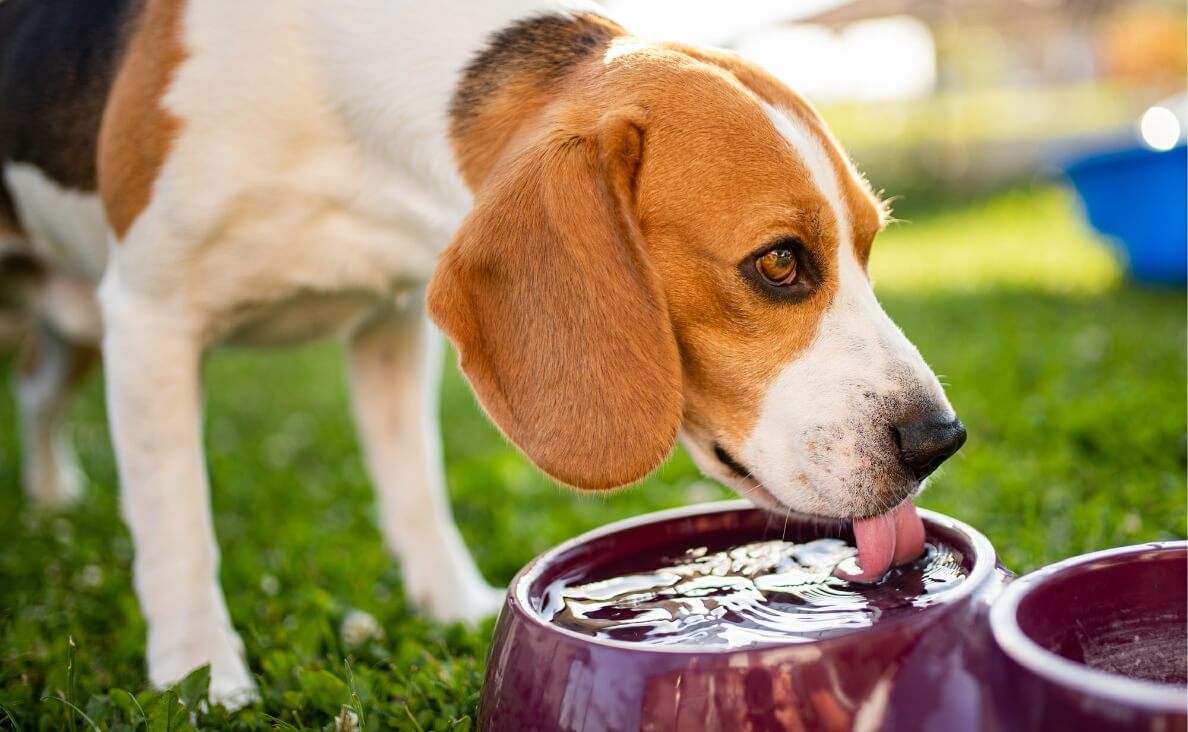
As responsible dog parents, we all know how crucial it is to keep our furry family member hydrated. Water is undoubtedly the best and most essential drink for dogs. However, you may wonder if there are any other safe and healthy options to offer your canine family members. In this blog post, we will explore various alternatives to water that dogs can safely enjoy.
Before exploring safe drinking options for dogs, it’s vital to understand the significance of their daily water intake. Water serves as the primary source of hydration for our canine companions, playing a crucial role in maintaining their overall health and well-being. Dogs rely on an adequate water supply for proper organ function, transportation of nutrients, cognitive support, and more. Just like humans, water is essential to dogs, and dehydration can lead to severe health issues. Therefore, ensuring a constant supply of clean, fresh water is paramount for keeping our furry friends happy and healthy.
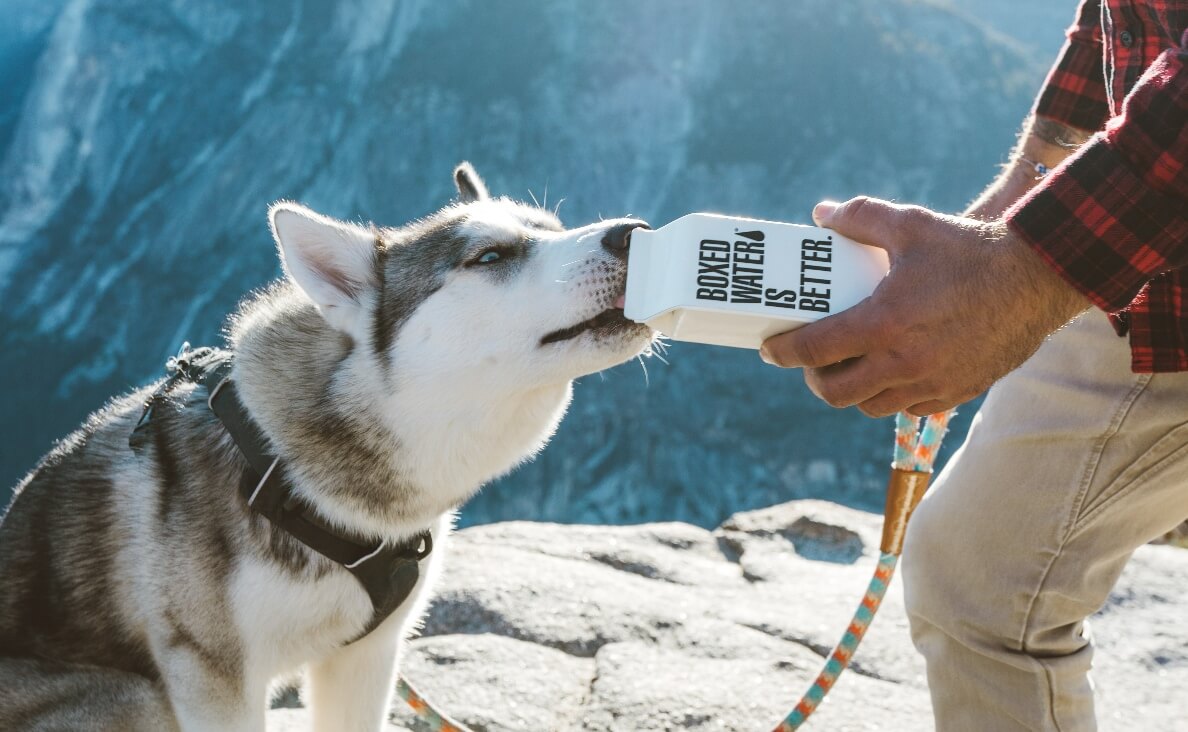
-
Bone Broth
Bone broth is a nutrient-rich liquid made by simmering animal bones and connective tissues. It provides essential minerals and amino acids, which can be beneficial for dogs’ joint health and digestion. Make sure the bone broth is homemade or specifically formulated for dogs, without any added seasonings or onions.
-
Coconut Water
Coconut water is a refreshing and hydrating drink for both humans and dogs. It contains electrolytes, vitamins, and minerals that can help replenish lost fluids. However, it’s essential to choose unsweetened and unflavored coconut water, as added sugars and artificial flavors can be harmful to dogs.
-
Herbal Tea
Certain herbal teas, when properly prepared, can be safe for dogs to consume. Chamomile tea, for instance, is known for its calming properties and may help dogs with anxiety or upset stomachs. Other suitable options include peppermint and ginger tea, which can aid in digestion. Always ensure that the tea is caffeine-free and free from any additives.
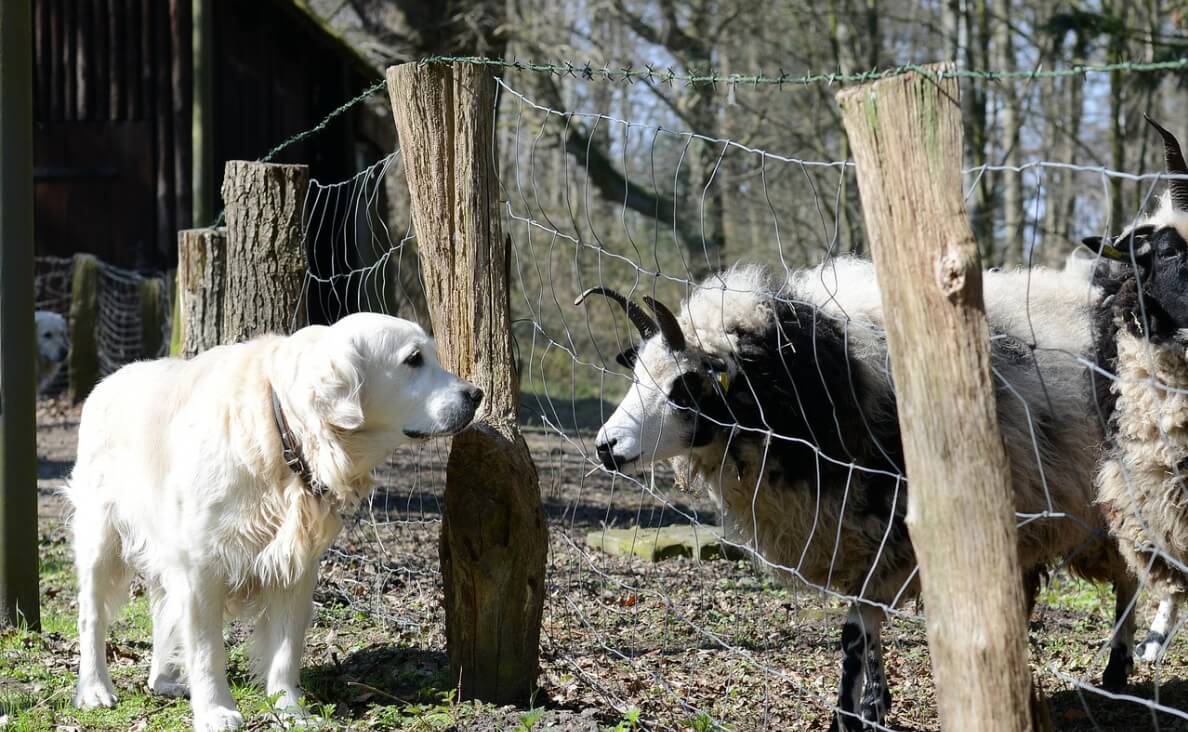
-
Goat’s Milk
Goat’s milk is a nutritious alternative to cow’s milk for dogs. It is easier to digest and contains lower levels of lactose. Goat’s milk is rich in vitamins, minerals, and probiotics that promote a healthy gut. However, it’s crucial to select goat’s milk specifically meant for dogs, as regular goat’s milk may not be suitable due to differences in composition.
-
Kefir
Kefir, a fermented milk product rich in probiotics, offers numerous benefits for dogs. Probiotics, the “good bacteria,” enhance gut health and alleviate digestive issues. Introducing kefir to your dog’s diet can promote a healthier digestive system and contribute to overall well-being.
-
Nut Milk
To keep your adult dog from experiencing any digestive issues, nut milk is the ideal choice as many adult dogs are lactose intolerant. Nut milk, such as almond or cashew milk, is packed with beneficial nutrients like vitamin E and vitamin B3. Just remember to opt for unsweetened varieties without any added ingredients, and offer only small amounts to your furry friend.
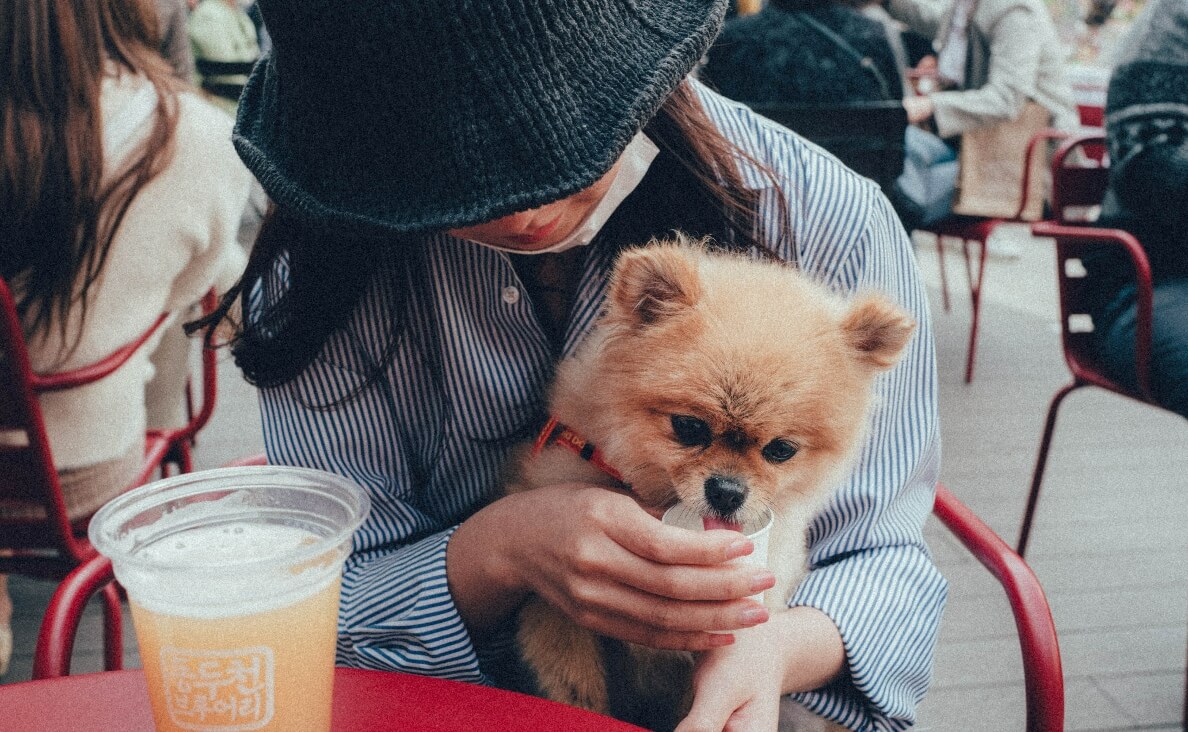
-
Fruit and Vegetable Juices
Some fruit and vegetable juices can be safe for dogs in moderation. Juices made from dog-friendly fruits like apples, oranges, or watermelons can offer a refreshing treat while providing hydration. It’s important to dilute the juice with water to reduce the sugar content and avoid excessive consumption.
Read more: The Ultimate Guide to Foods You Can and Can’t Feed Your Dog
-
Ice Cubes and Popsicles
On hot summer days, ice cubes and homemade dog-friendly popsicles can help keep your pup cool and hydrated. You can freeze low-sodium chicken or beef broth, diluted fruit juices, or even pureed fruits and vegetables to make tasty frozen treats. Always ensure the ingredients are safe and suitable for dogs.
-
Pedialyte
Pedialyte, an electrolyte-enhanced drink, is safe for dogs and can help quickly rehydrate their bodies. Ensure you choose the unflavored type and follow the dosage recommended by your veterinarian. Start by offering a small amount to check if your pup enjoys this healthy Pedialyte option.
There are also electrolyte hydration products on the market specifically designed for dogs, such as HydrADE, you can give your dog if he or she becomes dehydrated, such as after trauma, stress, illness, travel or exercising more than usual.
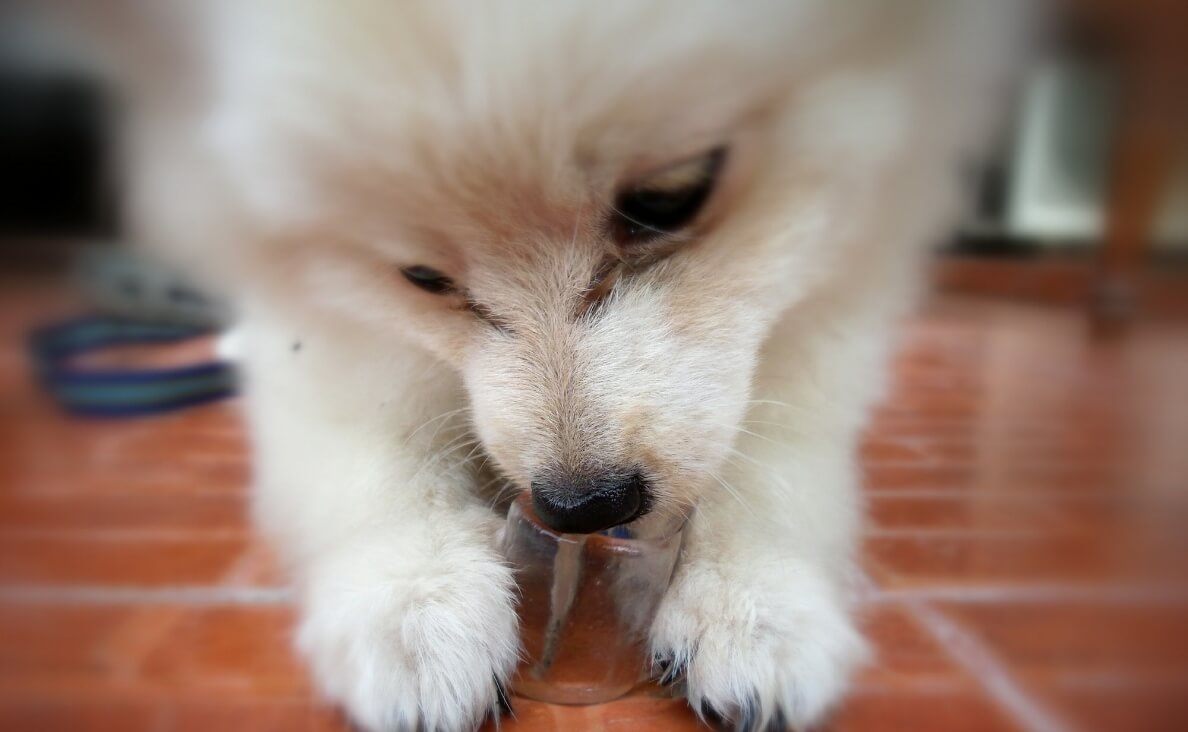
Important Considerations
While these alternatives can supplement your dog’s water intake, it’s crucial to keep a few key considerations in mind:
-
Moderation
Now that you know about the alternative drinks for your furry friend, you may wonder how often you can offer them. While each dog’s stomach sensitivity differs, it’s generally safe to treat your pup with these beverages 3-4 times per week. Remember, these drinks should be considered treats and should not exceed the 10% calorie rule. Your dog’s daily treat intake, including dog-safe beverages, should never exceed 10% of their daily caloric intake. Ensuring moderation will help maintain a balanced diet and overall well-being for your canine companion.
-
Individual Sensitivities
Dogs may have individual sensitivities or allergies to certain ingredients. Introduce any new drink gradually and observe your dog’s response. If any adverse reactions occur, discontinue the drink immediately and consult your veterinarian.
-
Consult a Veterinarian
If you have concerns about your dog’s hydration or if they have specific health conditions, it’s best to consult with your veterinarian. They can provide personalized guidance based on your dog’s needs.
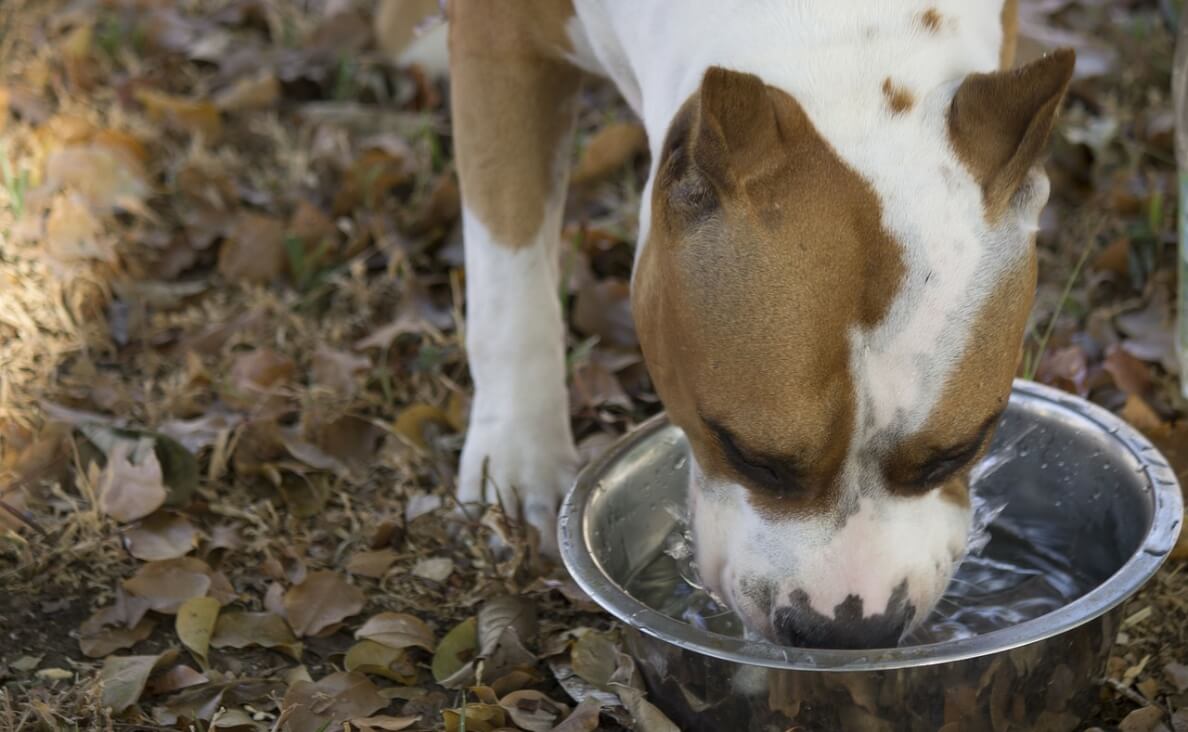
Liquids You Should Never Give Your Dog
While there are various safe and healthy liquid options for dogs, it’s essential to be aware of the liquids that should never be given to your canine companion. Here are some liquids you should never give to your dog:
-
Alcoholic Beverages
Alcohol is toxic to dogs and can cause severe health complications, including intoxication, liver damage, and even death. Never offer alcoholic beverages to your dog under any circumstances.
-
Caffeinated Drinks
Drinks like coffee, tea, energy drinks, or soda contain caffeine, which is harmful to dogs. Caffeine can lead to increased heart rate, restlessness, tremors, and in severe cases, caffeine poisoning. Keep these beverages out of your dog’s reach.
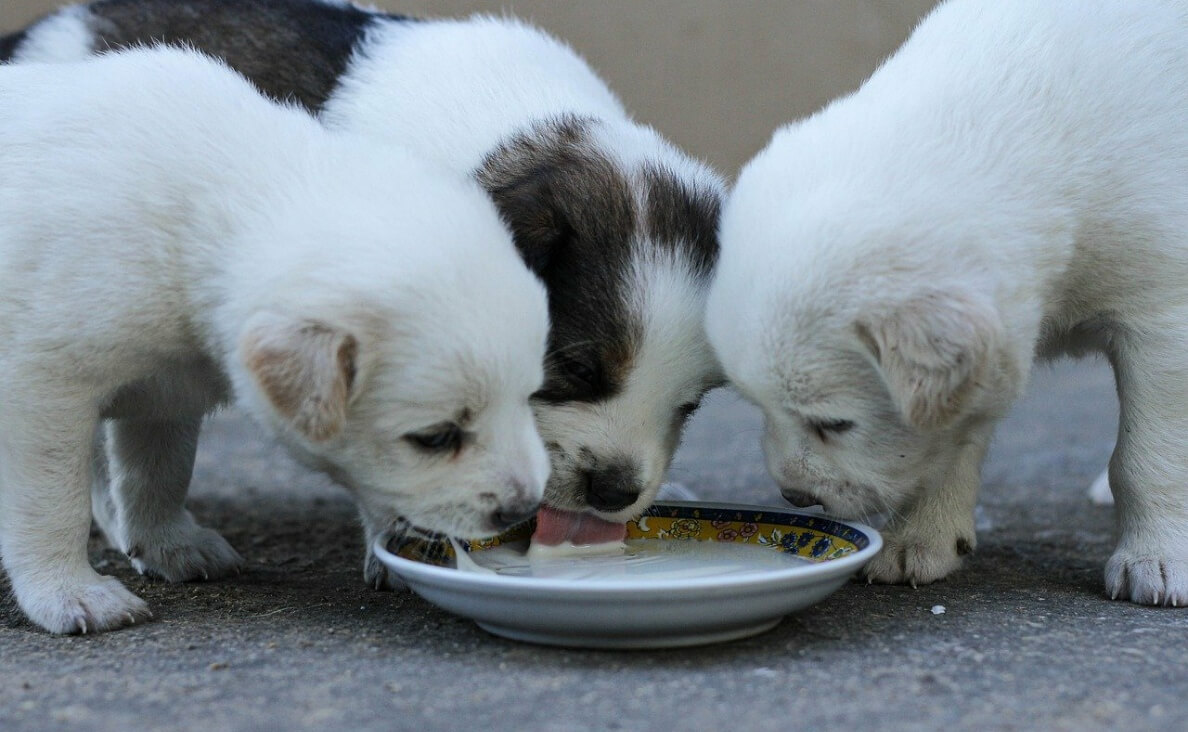
-
Milk and Dairy Products
While puppies can tolerate milk during their early stages, many adult dogs are lactose intolerant. Milk and dairy products can cause digestive issues, including diarrhea and upset stomach. Avoid giving your dog regular cow’s milk, cheese, or ice cream.
-
Sugary Drinks
Drinks with high sugar content, such as fruit juices or sweetened beverages, should not be given to dogs. Excessive sugar consumption can lead to obesity, dental problems, and an increased risk of diabetes. Stick to unsweetened and diluted options if offering fruit juices in moderation.
-
Drinks Containing Artificial Sweeteners
Drinks containing artificial sweeteners should never be given to dogs. Artificial sweeteners like xylitol are highly toxic to dogs and can lead to a rapid drop in blood sugar levels, liver damage, and even death. It’s crucial to read labels carefully and ensure that any drinks you offer your dog are free from artificial sweeteners to keep them safe and healthy.
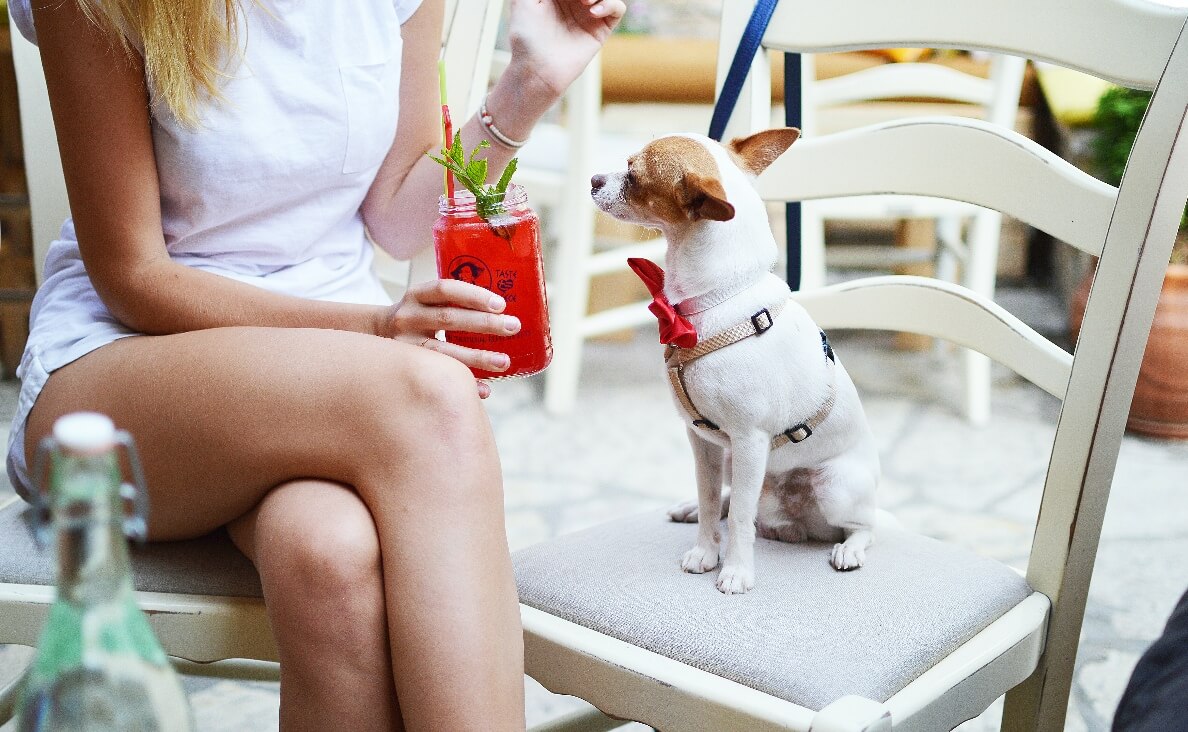
-
Carbonated Drinks
Carbonated beverages can cause bloating and discomfort in dogs. The carbonation can lead to excess gas and potentially gastric dilatation-volvulus (GDV), a life-threatening condition. Avoid giving your dog carbonated drinks, including soda or sparkling water.
-
Fruit Juice Concentrates
Concentrated fruit juices are typically high in sugar and may contain additives and preservatives that are unsafe for dogs. Always check the labels and avoid giving your dog concentrated fruit juice.
-
Medications and Human Supplements
Never administer human medications or supplements to your dog without veterinary guidance. Many medications can be toxic to dogs, and the dosage needs to be specifically prescribed by a veterinarian.
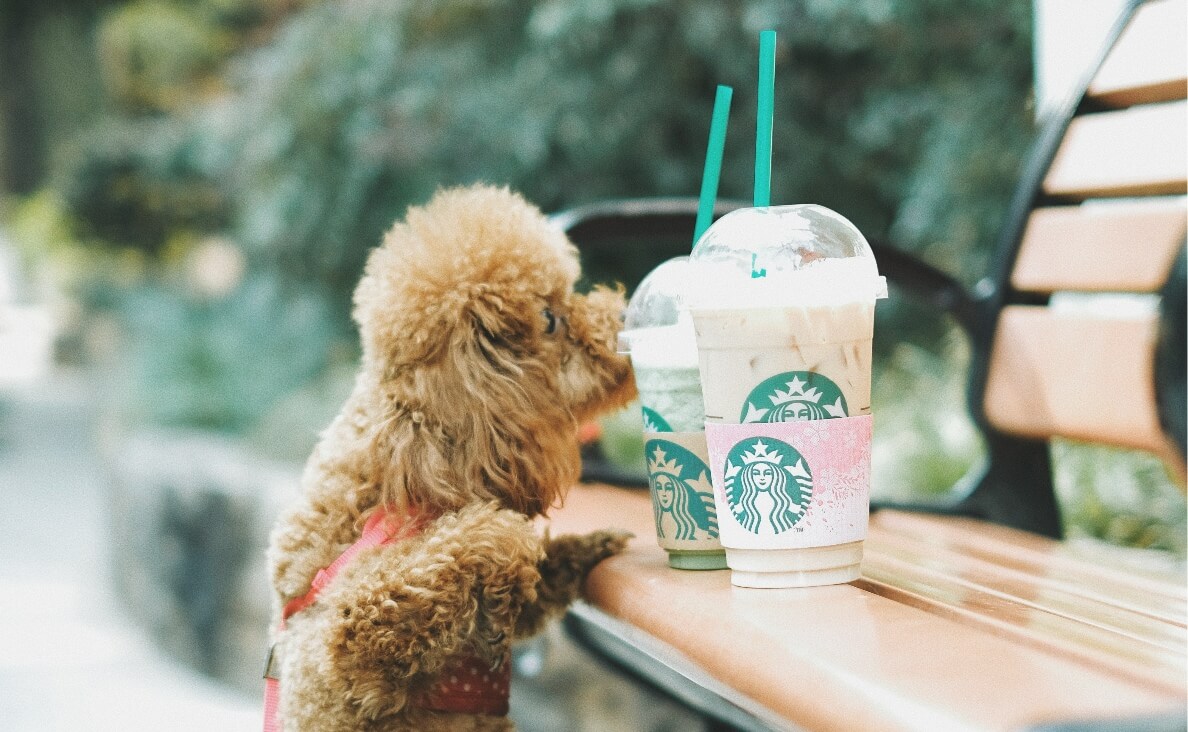
Final Thoughts
While water should always be the primary source of hydration for dogs, there are safe and healthy alternatives to explore. Bone broth, coconut water, herbal teas, goat’s milk, kefir, fruit and vegetable juices, Pedialyte, and homemade frozen treats can provide variety and additional hydration for your furry friends. Remember to offer these alternatives in moderation and prioritize your dog’s overall health and well-being. As always, consult with your veterinarian for specific recommendations and guidelines tailored to your dog’s needs.
What’s your dog’s favorite beverage to drink? Has he or she tried any of the water alternatives listed above? Please leave a comment below!

 How to Know if Your Dog Has Allergies and What To Do About It
How to Know if Your Dog Has Allergies and What To Do About It What to Expect When Adopting a Dog With Medical Issues
What to Expect When Adopting a Dog With Medical Issues What You Need to Know About Inflammation in Dogs
What You Need to Know About Inflammation in Dogs How to Care for a Dog with Cushing’s Disease: A Comprehensive Guide
How to Care for a Dog with Cushing’s Disease: A Comprehensive Guide 7 Dangers of Obesity in Dogs
7 Dangers of Obesity in Dogs






Can we give awacato to my yorkies
Do you mean avocados? If so, the flesh of avocados can be eaten in small amounts by dogs. They should not eat the skin, pit or leaves. Dogs should only eat avocados in small amounts because they contain persin, a fungicidal toxin that can cause serious health problems — even death — in many animals. Avocados contain many nutrients which can be good for dogs. Yorkies are small dogs, so be cautious if feeding them avocados.
Dogs should NOT eat guacamole because it contains onions and garlic, which can lead to anemia and kidney failure if enough is ingested.
And EVERY Vet I’ve ever spoken to says NO to giving your dog Pedialyte in ANY quantity!!!
Good to know! Thank you for sharing your knowledge with the Canine Campus community! Hope you’ll visit us again soon!
My dog was just diagnosed with congestive heart failure. She has no appetite. Is there something I can put in her water for nutrients?
I’m sorry to hear of your dog’s diagnosis. Canine Campus is a dog care facility; we are not veterinarians. I strongly encourage you to reach out to your veterinarian’s office with your question. Another option is to contact an animal virtual care service like Pawp for on-demand 24/7 expert advice. I hope your dog’s treatment is successful and you have a long time ahead with him.
My dog has had strovite stones 6 in her op were removed and she is only 10months old a shitzu X we found her in a box when she was tiny so have no family history
I am worried she doesn’t drink enough
I float her food and she only has a meat diet
How can I encourage her to drink more?
It sounds like you need to consult with your veterinarian who is familiar with your dog’s needs. Canine Campus is a dog boarding, daycare and grooming facility – we can not give veterinary advice. I hope your pup is feeling better by now.
My dog was suffering from canine distemper presently she wouldn’t eat but drink milk , yoghurt as well can you please guide regarding some vegetarian food liquid recipes that makes her strong ..
Please contact your veterinarian for liquid recipes for your dog as we are unable to make specific recommendations. Thank you for stopping by the Canine Campus blog.